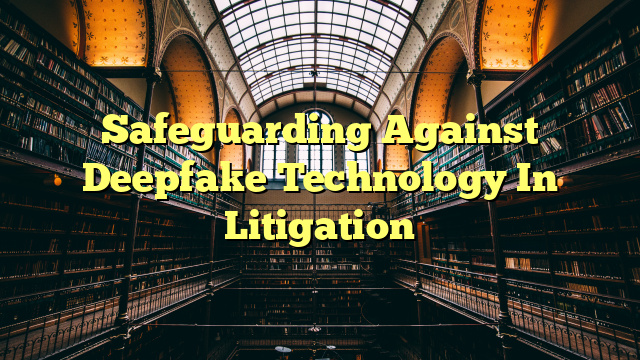Table of Contents
Introduction
Deepfake technology is a relatively new form of artificial intelligence (AI) that enables users to manipulate digital media, such as photographs and videos, to create realistic-looking images and video footage of people. Deepfake technology is becoming more widespread, and its potential applications are continuously expanding. In the legal world, deepfakes have become a concern as they can be used to manipulate evidence and alter the truth in legal proceedings.
History of Deepfake Technology
Deepfake technology was first developed in 2017 by researchers at Facebook’s AI research laboratory, who used the technology to create realistic-looking videos of celebrities. Since then, the technology has been used for a variety of applications, from creating realistic-looking images of people for marketing and advertising campaigns to creating realistic-looking videos of people for entertainment purposes.
The technology works by taking a large set of images or videos of a person and then using AI algorithms to generate a realistic-looking video of that person, based on the data. The technology is constantly improving, with researchers developing new algorithms and techniques to make the videos even more realistic, and it is expected to become even more powerful in the coming years.
Legal Considerations
The legal implications of deepfake technology are vast and varied. One of the most obvious is the potential for deepfakes to be used to alter or manipulate evidence in legal proceedings. Deepfakes can be used to alter or create evidence of a person’s actions or words, or even to create entirely new evidence. This could be used to either incriminate or exonerate a person in a legal proceeding and could potentially have far-reaching implications for the legal system.
Additionally, deepfakes could also be used to embarrass or defame people, or to spread false information. This could have serious implications for free speech and could potentially lead to a chilling effect on public discourse.
Can you sue someone for making a deepfake?
Yes, a person can be sued for making a deepfake if it is deemed to be defamatory or false. However, it is important to note that the use of deepfakes is still relatively new, and this area of law is still developing.
What is the legal issue with deepfakes?
The legal issue with deepfakes is that they can be used to manipulate evidence or spread false information, which could have serious consequences for the legal system and for freedom of speech.
Is deepfake technology legal?
Deepfake technology is legal in most countries, but the use of deepfakes for illegal purposes, such as defamation or fraud, is illegal.
What are the possible solutions to avoid deepfakes misuse?
There are a few potential solutions to prevent the misuse of deepfakes. One is to create laws or regulations that outlaw the use of deepfakes for malicious purposes. Another is to use digital watermarking technology to authenticate digital media, so that it can be more easily identified as authentic. Additionally, AI algorithms can be used to detect deepfakes and flag them for removal. Finally, public education and awareness can help to reduce the likelihood of deepfakes being misused.

